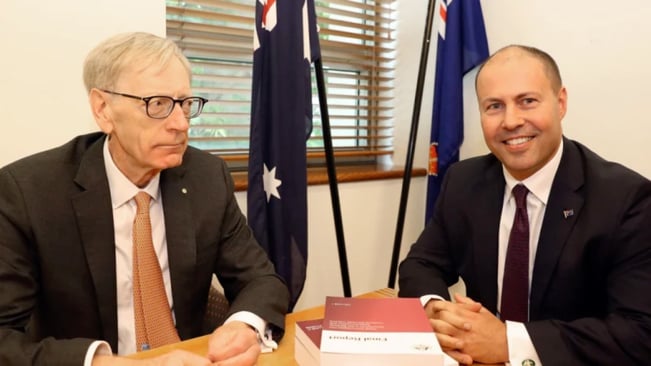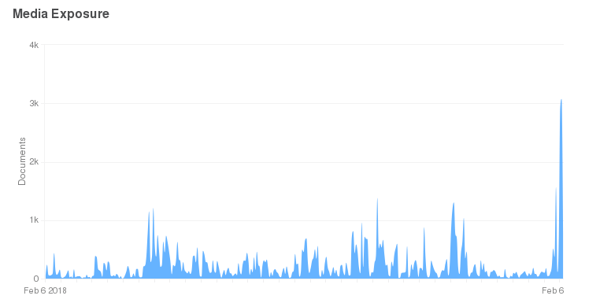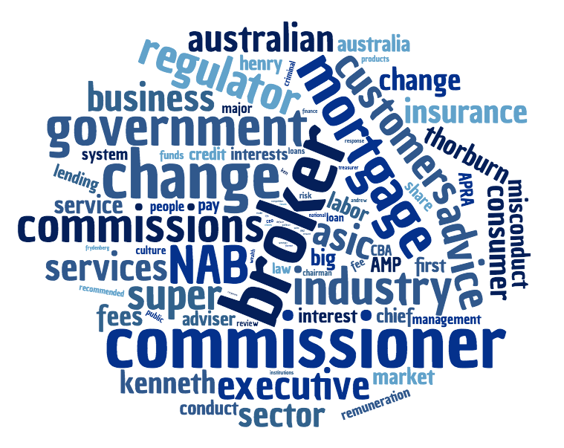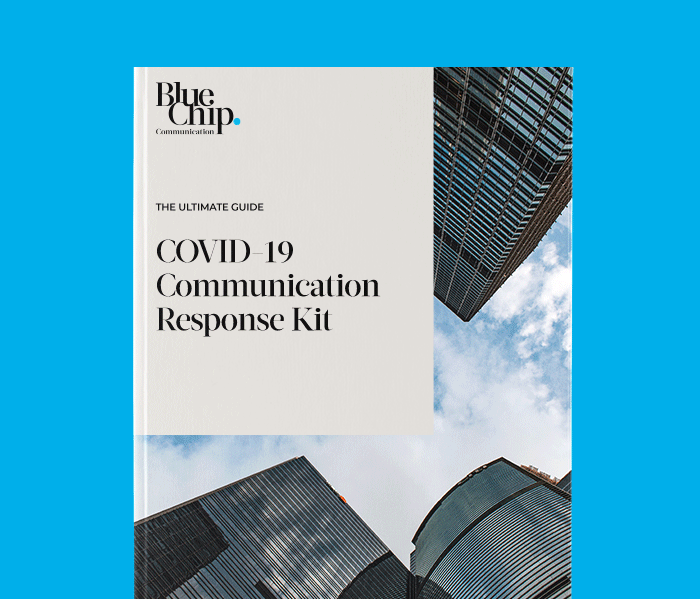Crisis Management Royal Commission Watch - Part 9
For a Commission praised for ‘shining a light’, there are a lot of dark looks in Hayne’s direction this week – but they say it’s better to light a candle than curse the darkness. The final report hasn’t convinced stakeholders: it will take persistent, genuine effort to do that.

This Commission in numbers:
- More than 86,000 online articles on the Royal Banking Commission over 12 months
- 223% more coverage than the previous highest volume media day of the Commission (the interim report)
- Some 300 articles in the three days after the final report mentioned “soft”
As we make sense of the task ahead for the industry - restoring trust - we’ll share our observations as communicators. There’s no silver bullet fix, but there are ways to stop, or slow, the PR and reputational crisis in financial services.
Fin. That’s all folks!
The Banking Royal Commission is over. Many would argue not with a bang but with a whimper.
Hayne has handed down his verdict. After a year of being drawn as the avenging hero he’s now come in for his own censure. Commentators – disappointed by a toothless, bloodless ending – have swung the pointed finger. Their assessment, with Hayne’s work now in the balancing scales, is that it’s come up light.
Could he ever have won?
Media coverage has been higher this week than at any other point in the Commission – not surprisingly – but where commentators previously seemed to move in rank, the post-final report reactions were ambivalent.
Many seemed to find Hayne’s final report and its impact anticlimactic. In fact, the media seems to have been struck with the same cynical apathy that was identified as a driver of consumer indifference. Where the prevailing overtones of coverage throughout the Commission were outrage, indignation, and pity, they have now turned to resignation and fatalism.

Those of us who are observers this week heard the same refrain, that these events come around every decade to little effect. ‘Plus ça change’ the headlines cry, calling the final report a ‘dud’, with ‘more bark than bite’, whose ‘big hits failed to materialise’, and that ‘kicked true reform down the road again’.
Others went further, claiming that Hayne had failed Australians, while delivering a "clear win for the banks":
“Hayne makes it rain” “bank…investors cheer 'best possible' inquiry outcome” “Banks win from 'disappointing' royal commission report” “What royal commission? Banks receive a $19 billion payday” “A right royal let-off for the banks” “banks enjoy post-Hayne bounce on sharemarket” “Big four laughing all the way to the bank”
Implying that Hayne rewarded the banks with a “soft” report, based on a release of pressure on share prices, is something of a logical fallacy. That this is the story being told by commentators marks a turn into deep scepticism.
No relief
As good as the storytelling was throughout the Commission, and for all its moments of anagnorisis, it seems that a large contingent feel robbed of their rightful ending. We have seen a resurgence of spotlights on affected individuals this week, with reports that without the satisfying catharsis of criminal charges, victims and “witnesses feel little closure”.
“The danger is that the populist bloodlust that provoked the royal commission in the first place will not be satisfied by Commissioner Hayne's final verdict.”
NAB’s Andrew Thorburn and Ken Henry – personally named by Hayne – refused to fully accept his criticisms making themselves easy targets for commentators’ frustrated wrath, and likely sounding the death knell of their respective careers at the bank. Frydenberg also came under considerable fire for refusing to say sorry.
We discussed in the last blog the need for four key demonstrable reparations after a breach of trust: Acknowledgment; Transparency; Removal of temptation; and Consistency of behaviour. In falling at the first hurdle, several players this week fed into the atmosphere that looked upon Thorburn’s planned leave, and then cancellation of the same, and Shayne Elliot’s Big Issue sales, with cynical disbelief. The same suspicion saw “spin doctors” and collusion around every corner.
'Nothing will come out of it': Many sceptical system will change
 Most common words, weighted by frequency, across coverage from The Aus, The AFR, The SMH, and the ABC on 4th-7th Feb (excluding commission, financial, royal, Hayne, bank and banking)
Most common words, weighted by frequency, across coverage from The Aus, The AFR, The SMH, and the ABC on 4th-7th Feb (excluding commission, financial, royal, Hayne, bank and banking)
Making change
Real change in the industry could never come from Hayne’s report in isolation. As we’ve said previously, if successful, it will be a combined effort. Boards and management have a responsibility for strong and deliberate leadership, including how they manage reputation risk in future. Industry employees have a responsibility for ethical implementation and holding their leaders accountable. Consumers have a responsibility to be discerning and engaged.
Commentators have a responsibility to consider, call out, and criticise – but steadfast fatalism allows for no change of the status quo.
Fatalism on the part of financial services leadership, generations of executives, intermediaries and anyone else who benefited from “that’s how things are”, created the very issues that the Commission exposed. It won’t fix them.
Consumers and commentators will necessarily be part of the change, but the Commission showed the depth of the problem without, it seems, providing a satisfactory solution to set minds at ease.
Instead, financial services will have to continuously communicate the change being enacted. And not in a manner that aims to win the daily headline battles – as this week’s missteps showed – but in a way genuinely and authentically driven by long-termist leadership values and organisations’ identities. It’s a war that will be won over years, not days.
In short, the industry must simply “be better”. We’ve talked previously about what that looks like in practice.
Commissioner Hayne told boards to stare down short-term investors. Communication teams, lobbyists and marketers must do the same.
In cynical weather, sensitivity to ‘PR stunts’ is higher. Symbolic gestures, even placatory ones, further risk board and CEO credibility. Instead, communication and action must strictly align to the underlying ethos of an organisation.
Broken brokers
The one recommendation that did elicit a strong collective reaction was the proposed changes to mortgage broker remuneration structures. Commentators see brokers not as part of the intrinsic problem with financial services, but as one of the last bastions of consumer power. Many see brokers as keeping the banks honest, competitive, and fairly priced, while equipping consumers with more information and helping them navigate overwhelming choice.
Several commentators have written in depth to argue that this recommendation was a mistake, and some have already painted brokers as victims set to lose their incomes and businesses. But with both political parties pressured by an upcoming election to accept Hayne’s recommendations quickly and unilaterally, this may be a final casualty of the Commission. Traction from grass roots movements such as the hashtag #brokersworkforyou, and thoughtful, considered media support may tip the balance, but it will be interesting to see how this story plays out in coming months.
So for those in the industry, and for the watching media, giving in to the assumption that nothing will – or can – change, will be a self-fulfilling prophecy. But carrying forward the momentum of the Commission and its teachings is possible – and essential if we want a fair, robust, and effective Australian financial services industry. Slow, steady and sanguine – per Hayne’s public conduct – will win the race, for all stakeholders.
Download BlueChip’s COVID-19 Communication Response Kit, a practical guide to help you act, communicate and lead with more certainty. It provides communication and crisis management tools specifically developed for financial services CEOs, leadership teams and coronavirus response teams.
If you’d like to discuss adjusting your communication strategy for the current times, please call us or fill out our contact form here.













